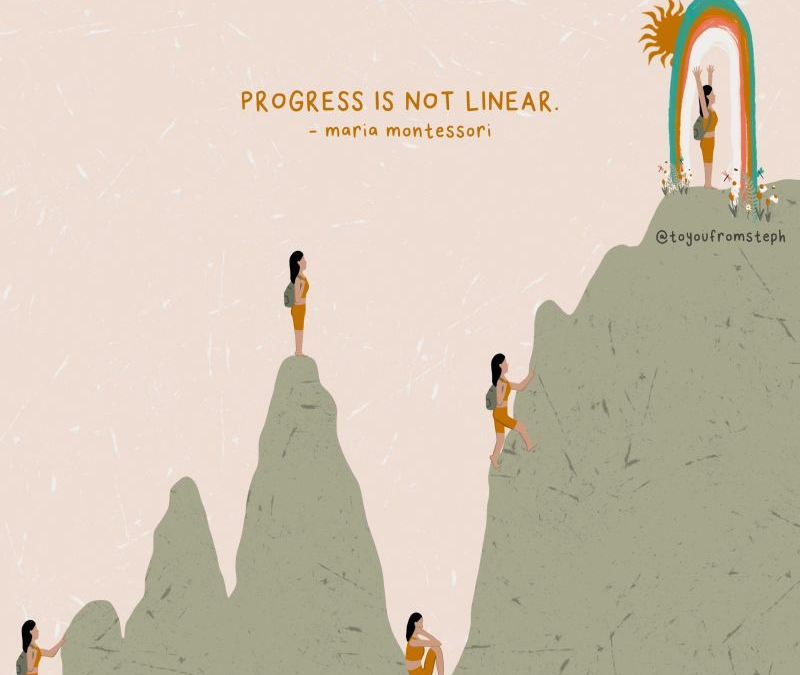The Windy Road to Wellbeing
Progress is not Linear
Sometimes we face challenges that feel like climbing a mountain. With every step we take, we get upset for not having arrived at our destination yet, because we underestimate how big the mountain is. The only way to climb mountains, is one step at the time. Now, we expect our journey to be one straight line to the top of the mountain.
In reality, it looks more like this:

So when we’re going down, it’s important to remember: as long as you are on the right path, you are getting closer to your goal. Even when things go down for a while.
Journeys aren’t meant to be straight lines — they’re more like those squiggly lines kids draw with crayons, full of unexpected twists, turns, and the occasional loop-de-loop. This is true for personal growth, therapy, and, as Maria Montessori herself would argue, education. Montessori, a pioneer who didn’t just follow the path but paved her own, taught us that learning is an adventure with its own set of ups and downs. So, let’s dive into a story that mirrors this philosophy and explore how therapy, much like a Montessori classroom, can support us through the rollercoaster ride of life.
Progress is not Linear
Sometimes we face challenges that feel like climbing a mountain. With every step we take, we get upset for not having arrived at our destination yet, because we underestimate how big the mountain is. The only way to climb mountains, is one step at the time. Now, we expect our journey to be one straight line to the top of the mountain.
In reality, it looks more like this:

So when we’re going down, it’s important to remember: as long as you are on the right path, you are getting closer to your goal. Even when things go down for a while.
Journeys aren’t meant to be straight lines — they’re more like those squiggly lines kids draw with crayons, full of unexpected twists, turns, and the occasional loop-de-loop. This is true for personal growth, therapy, and, as Maria Montessori herself would argue, education. Montessori, a pioneer who didn’t just follow the path but paved her own, taught us that learning is an adventure with its own set of ups and downs. So, let’s dive into a story that mirrors this philosophy and explore how therapy, much like a Montessori classroom, can support us through the rollercoaster ride of life.

